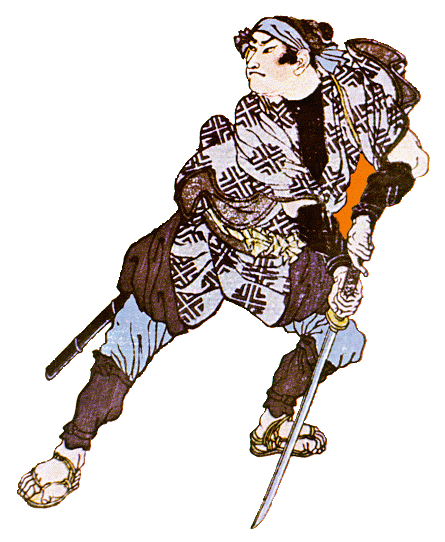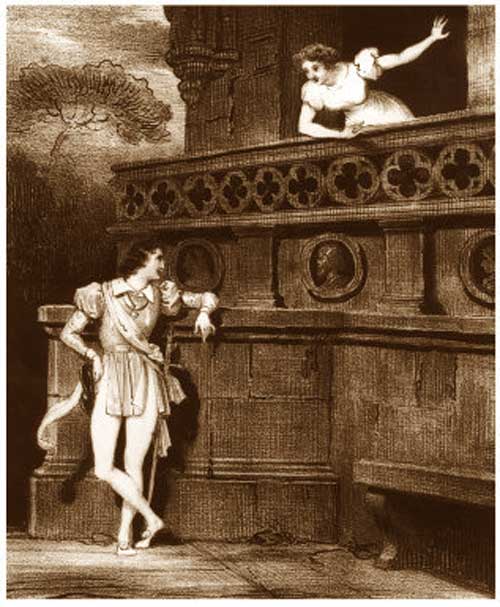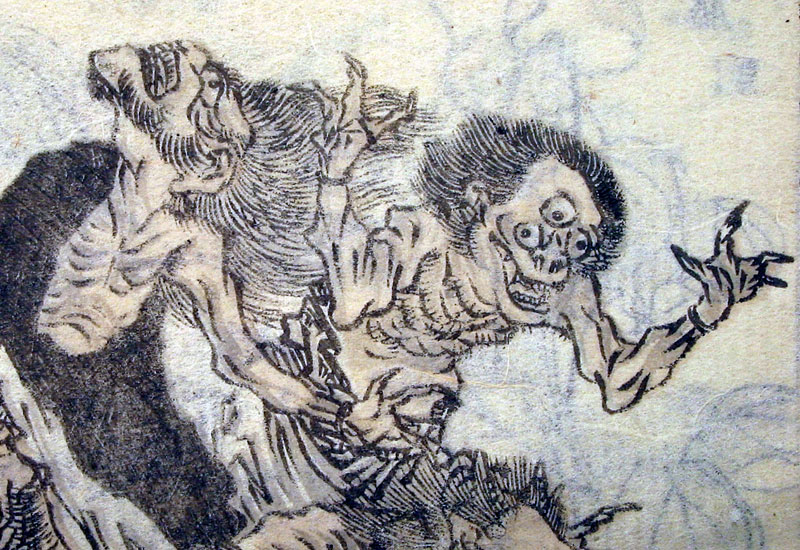
Where I Began
In my pondering of Manga and Shakespeare, I have often returned to asking whether or not the Japanese culture can accurately interpret the elements of Shakespeare. Though manga as a genre has escaped the boundaries of Japan, the fact that it originated on the island nation allows many of the techniques and styles within manga to be drawn from historical and cultural elements of the Japanese. Therefore, I wanted to analyze important elements of the culture presented in Shakespeare's Elizabethan plays and see if there were any comparable elements in Japan's cultural history.
What I Did
I started by gathering awesome images on "Google images" which became my chief export for this section's research. There were some graphics that barely needed any explanation, but fit right into my comparison goal.
Class
Japanese Class System
I believe this visual I found on google images gives a good feel for the Feudal system of Japan.
Elizabethan Class System
Though this graph follows rank rather than social standing, it matches the triangle more accurately than other graphs I found. Obviously, clergy is not accounted for in either one. Buddhist and Christian organizations arguably should have their own hierarchal graphs, since initiation and advancement are quite different from the outside world. While Elizabeth was in charge of the Anglican church, Buddhism leadership is chosen at birth after babies are linked with their former identities.
Reasons Behind a Man's Choices
European Humours

Europe was convinced that the body was made up of four humours: blood, green bile, yellow bile, and black bile. An imbalance in any of these humours would lead to irregular behavior. For instance, if a man was considered hot headed, a physician might bleed him a bit in order to bring his humours back in balance.
Honor
Bushido

Bushido is so close to chivalry, it is not even funny:

Romance

Romeo and Juliet is a fairly romantic play, and a ton of Brits knew about it and let the story influence their actions a tad, I am sure. Therefore, I wanted to know if the Japanese had any similar love story that would allow such a romantic relationship to be understood.
The Japanese Know Romance

--wikipedia
Troubled Nobility
Heavy Crown of Mercury?

I know he was far from the most disturbed ruler thanks to Martin's post on psychotic world leaders, but I believe Richard was fashionably disturbed. He is not alone, of course. King
Tokugawa Ieyasu
徳川家康
徳川家康

Ieyasu had a number of qualities that enabled him to rise to power. He was both careful and bold—at the right times, and at the right places. Calculating and subtle, Ieyasu switched alliances when he thought he would benefit from the change. He allied with the Hōjō clan; then he joined Hideyoshi's army of conquest, which destroyed the Hōjō clan; and he himself took over their lands. In this he was like other daimyo of his time. This was an era of violence, sudden death, and betrayal. He was not very well liked nor personally popular, but he was feared and he was respected for his leadership and his cunning. For example, he wisely kept his soldiers out of Hideyoshi's campaign in Korea.
He was capable of great loyalty: once he allied with Oda Nobunaga, he never went against Nobunaga; and both leaders profited from their long alliance. He was known for being loyal towards his personal friends and vassals, whom he rewarded. However, he also remembered those who had wronged him in the past. It is said that Ieyasu executed a man who came into his power because he had insulted him when Ieyasu was young.
Ieyasu protected many former Takeda retainers from the wrath of Oda Nobunaga, who was known to harbor a bitter grudge towards the Takeda. He managed to successfully transform many of the retainers of the Takeda, Hōjō, and Imagawa clans—all whom he had defeated himself or helped to defeat—into loyal followers.
--wikipedia
Magic
Prospero and other Wizards

Onmyōdō (陰陽道, also In'yōdō) is a traditional Japanese esoteric cosmology, a mixture of natural science and occultism. It is based on the Chinese philosophies of Wu Xing and Yin and yang, introduced into Japan at the turn of the 6th century, and accepted as a practical system of divination. These practices were influenced further by Taoism, Buddhism and Shintoism, and evolved into present-day onmyōdō around the late 7th century.
--wikipedia
Conclusions
In light of some of the comments, I have questioned what my goal is in this comparison. Martin has also got me thinking if this cultural element I am toying with is at all connected to Manga anymore, since there are so many noobs in other nations that are trying and failing to create authentic manga (some of these I have already featured).



0 comments:
Post a Comment